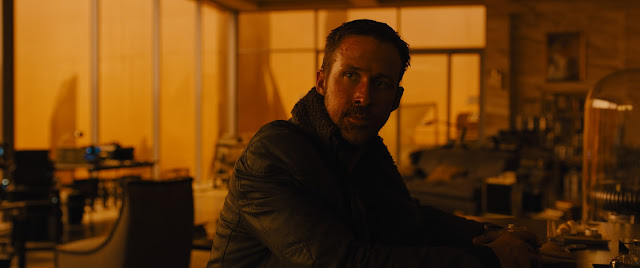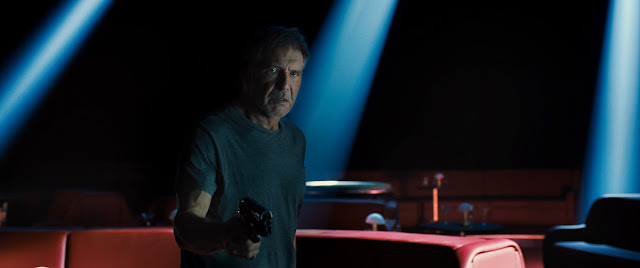‘Blade Runner 2049’, like its 1982 predecessor, was generous enough to allow its audience to digest each moment of the action with its calm and relaxed pace. It’s the kind of film that never tries to interfere itself with the usual exhaustive tendencies of conventional cinema, nor it is not afraid to say something quite striking. The result is an epic that is more of an effective and affective meditative piece than an exercise.
Going 30 years after the first ‘Blade Runner,’ a new line of replicants (androids that are made to act, look, and react like humans) were introduced by the Tyrell Corporation. This led to hired assassins known as “blade runners” to retire (kill) old versions. K (Ryan Gosling), a blade runner, was pitted to a threat that is both personal and world threatening after discovering the possibilities of pro-creation among replicants.
‘Blade Runner 2049’ examines and dissects this possibility as a tool to delve into the existentialist concerns, asking if the ability to love already makes someone (or something) human even if love can actually be purchased. Director Dennis Villenueve makes it a point to continue and expand this viewpoint that Ridley Scott left in the last film. Much like the 1982 film, this one never gives solution. Instead, the audience are left to absorb its ambiguity.
In what might be the most emotionally packed yet restrained love scene in recent cinema memory, K has gone to an extent to have sex with a prostitute as a medium for his hologram partner to mask herself into. On this very short sequence alone, Villenueve left a very striking remark on using ironies as a tool to strengthen an idea than straying away from it. Here, we see love being both as something tangible yet unreachable. But with this (forced) connection, we could very well see this as K’s eventual transition to another level of isolation. Isolation that led him to a commodified form of companionship.
Harrison Ford’s return as Rick Deckard here already stands as one of the best performances of his career. Much like the world this film sets up, Ford is desolate, mysterious, and empty, stripped off his usual charismatic flare. From the moment we see him, (and it took him an hour and a half before we actually get to so) we are instantly drawn to Ford, but Deckard. It’s the prolonged build-up to this moment that tells you this is not a Harrison Ford show, but he definitely steals every scene he’s in. I think this is something (and forgive me if I’m comparing) that Star Wars: The Force Awakens and the last Indiana Jones movie lacks in terms of continuing an old material. This isn’t Ford mentoring a kid that could possibly follow his footsteps, but someone who is trying to dig up a purpose he lost for years. It’s a sad realization to an already gloomy film.
‘Blade Runner 2049’ also made quite an interesting way to sell nostalgia to its audience. For a sequel whose predecessor came roughly 30 years back, the need to go back to re-establish a universe as well as character arcs is employed here by not fully addressing it. We, instead, are treated by following a large part of Ryan Gosling’s K in his pursuit for the validation of his memories. I think what Villenueve really wants to say here is how can we satisfy the nature of our existence? Or to put it simply, how can we determine our purpose? Do we need to go back or move forward? Are all of these really essential?
'Blade Runner 2049' is now showing in cinemas nationwide.
Geek out by following The Film Geek Guy:
Facebook: The Film Geek Guy
Twitter: @matthew_escosia
Instagram: matthewescosia
E-Mail: matthew.escosia@yahoo.com 

















Do you love foods? What is your favorite food? mine is malai kofta. Very delicious and tasty food. leavrn how to cook malai kofta. look a site on this https://cut.sx/t4d
ReplyDelete